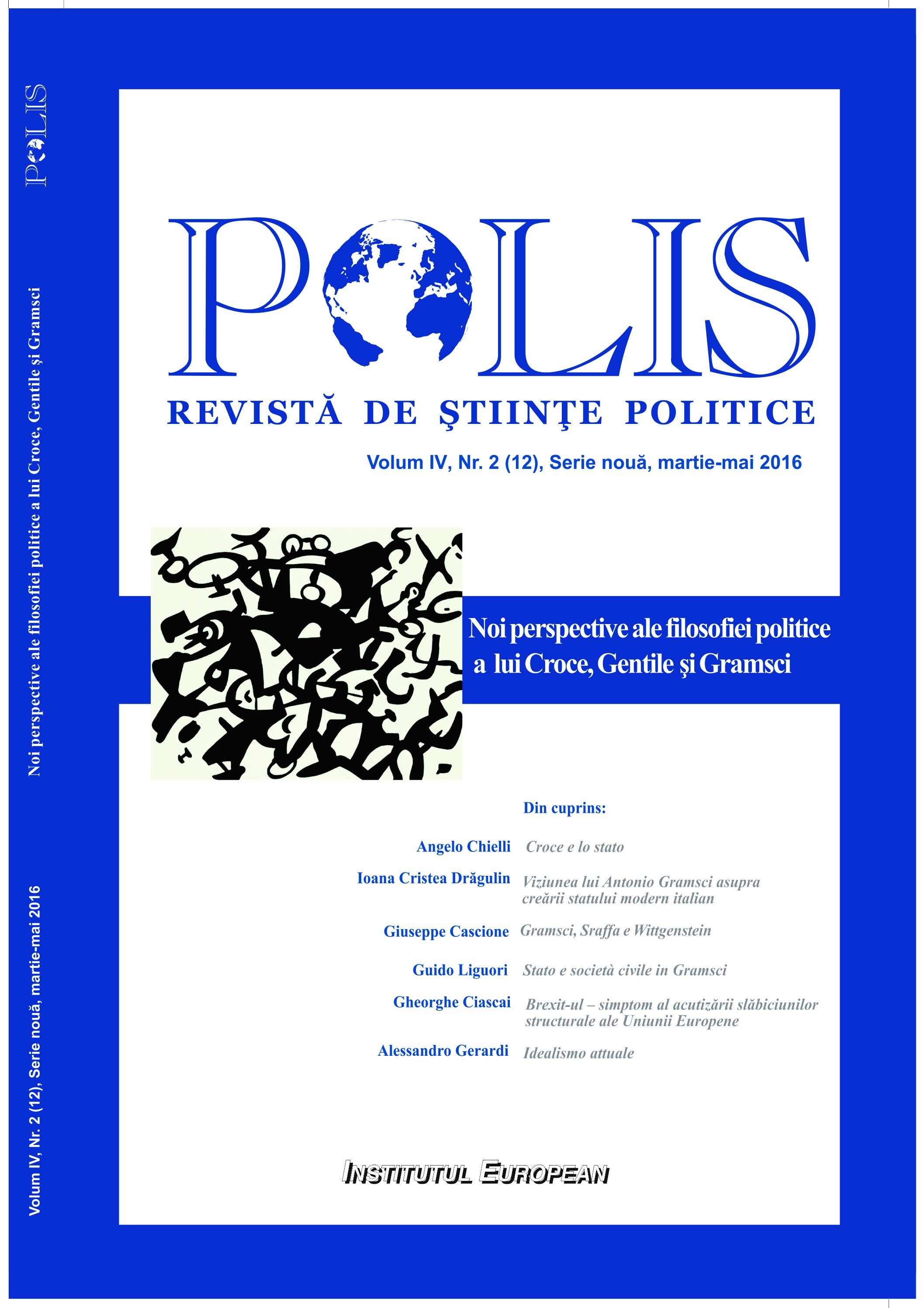Stato e società civile in Gramsci
State and Civil Society in Gramsci
Author(s): Guido LiguoriSubject(s): Political Philosophy, Governance, Government/Political systems
Published by: Editura Institutul European
Keywords: Gramsci Antonio; Marxism; Italian Communism; Egemony; Theory of State; Civil Society;
Summary/Abstract: Gramsci is not, as at times has been said, the “theoretician of civilsociety”. Central to his reflections in the Prison Notebooks is instead the conceptof the “integral State” or “extended State”, the dialectical union of State andcivil society which allowed him to interpret the new social and political situationtypical of much of the twentieth century. This new situation is characterized, onthe one hand, by a new relationship between the economy and politics and, onthe other, by the growing importance of the “apparatuses of consent” flankingthe State’s traditional repressive apparatuses. For Gramsci the apparatuses ofconsent are sometimes public and sometimes apparently private but, in any case,their function is the same, namely to reinforce the hegemony of the dominantclass, and to propagate a traditional common sense, thereby making it difficultto challenge the given set-ups of power. Since there has been a change in theState – the terrain of the struggle for power – the concept of revolution must alsochange: this is no longer an isolated insurrectionary event, as it was in thenineteenth century, but a long struggle for the conquest of “trenches andemplacements”, in other words the conquest of the centres that produce andextend consent.
Journal: Polis. Journal of Political Science
- Issue Year: IV/2016
- Issue No: 12
- Page Range: 13-28
- Page Count: 16
- Language: Italian

